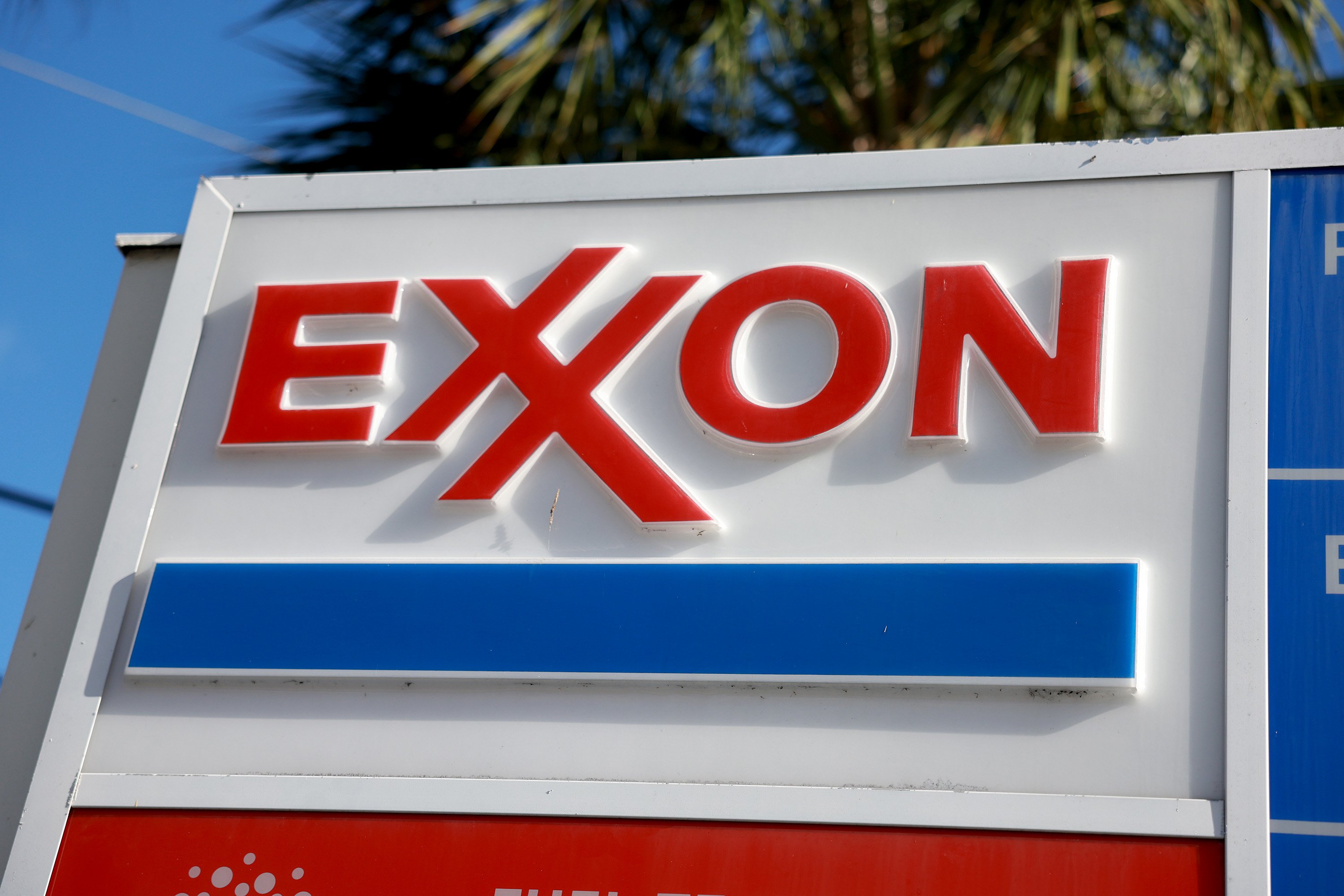There's an investing trope that you shouldn't fall in love with any stock you own. But ExxonMobil (XOM +0.34%), Hormel Foods (HRL +0.83%), and W.P. Carey (WPC +0.64%) are easy stocks to love. Although nothing is truly forever, these are three stocks I plan to own for a very long time. Here's why.
1. The diversified energy giant
Exxon is one of the largest and most diversified energy companies in the world. Its business spans from upstream drilling through the midstream segment and on to the downstream chemicals and refining businesses. This broad industry reach provides important balance to revenue, since falling oil prices are a net benefit to the downstream business. The all-encompassing structure helps the company survive the inevitable ups and downs of oil prices. That's how it has managed to increase its dividend for 36 consecutive years, a feat unmatched by its closest peers.

Image source: Getty Images.
I also like Exxon's conservative balance sheet. Long-term debt makes up less than 10% of the capital structure. That's low for any company in any industry. The low level of debt allows it to keep rewarding investors and investing in its business even during downturns, something most of its peers haven't been able to achieve. Yes, that might result in a temporary uptick in leverage, but once the turbulence passes, Exxon has proven it gets right back to its conservative ways by paying down debt.
And the price is right today, with the dividend yield near 20-year highs and the stock's price to tangible book value near 30-year lows. But, as an oil company, Exxon faces a long-term risk as carbon fuels are displaced by electricity. That threat is further out than people believe, and Exxon is capable of spending as much as $30 billion a year on capital investments, as it is doing today. It's putting that cash toward the oil and gas business, but it could just as easily invest in electric assets. Note that Duke Energy, one of the largest electric utilities in the United States, has a market cap of around $60 billion, just twice what Exxon is spending in a single year today. Pivoting, when the time is right (perhaps with a big acquisition), shouldn't be too big a deal for this energy giant.
Check out the latest earnings call transcript for ExxonMobil, Hormel Foods, and W.P. Carey.
2. Leading in the grocery store
Hormel is a protein-focused packaged food company. It owns the iconic SPAM brand and holds the No. 1 or 2 position in 35 categories throughout the grocery store. Although the dividend yield (just 1.8%) is low for my taste, it is toward the high end of the company's historical range (for reference, a yield above 2% is a better buying point). However, the company has increased the dividend annually for an incredible 53 years.
HRL Dividend Yield (TTM) data by YCharts.
Hormel, like other packaged food companies, is dealing with changing consumer tastes. That's par for the course in this industry and for Hormel, and the company is working to adjust via both innovation (precooked bacon, peanut butter balls) and acquisitions (Wholly Guacamole and Columbus Meats). It's moving aggressively to provide customers with the fresh and healthy fare they desire today, notably with a strong push into the fast-growing deli aisle. It's also expanding its reach into foreign markets, with a recent foundational acquisition in South America and an already-notable position in China. Yes, times are tough today, but I'm confident Hormel will adjust and keep growing.
But what makes this stock a long-term keeper is the company's low debt and a unique ownership structure. Debt (long-term and short-term), even after a series of notable acquisitions, makes up only about 10% of the capital structure. As with Exxon, that's low for any industry and I'm comfortable that financial risk here is modest. I'm also confident that because of its $23 billion market cap, Hormel will avoid getting bought out by a bigger food company. The Hormel Foundation, a charity, owns more than 40% of Hormel's stock, and one of its express goals is to preserve the company's independence. That gives Hormel the leeway to think long term, even if the market is thinking short term. I like that.
3. A worldwide REIT
The last stock on my "forever" list is real estate investment trust, or REIT, W.P. Carey. The company is focused on net lease properties, which means it owns the property but its tenants generally pay most of the operating expenses for the assets (such as maintenance and taxes). The relationship is more like a financing transaction, in which a company sells vital properties to Carey and then instantly leases them back. Carey gets the spread between its capital costs and the rent it charges, which generally include annual escalators. The lessee gets cash that it can reinvest in its business, often to support growth or to fund an acquisition.
This is a pretty low-risk model that many REITs employ. What separates Carey is a long-term focus on diversification (many of its peers key in on just one domestic sector). To put some numbers on that, Carey's portfolio is spread across the office (nearly 26% of rent), industrial (23%), warehouse (21%), retail (18%), and "other" categories. Moreover, foreign assets account for a little more than a third of its rents (and are largely made up of European properties). Carey tends to invest opportunistically, so the more markets and sectors it's in, the more opportunity it has to find great investments to fuel its growth.
WPC Dividend Yield (TTM) data by YCharts.
This model has allowed Carey to increase its dividend annually for 22 consecutive years. With a yield of around 5.5% today, it's not a screaming buy. But for long-term investors, initiating a position at these levels wouldn't be a bad call. The REIT's yield is well above some of the triple net lease industry's best-known names even though Carey's dividend history is every bit as impressive. The market sees risk in its diversification; I see a business that's built for long-term survival.
I'm holding, hopefully forever
If something were to go seriously amiss at Exxon, Hormel, or Carey, I'd clearly sell my position. But, as I laid out, I'm excited about the core businesses and the way they are run, and I'm inclined to own them indefinitely. Exxon looks attractive right now. Carey and Hormel are both a little more expensive than I would like if I were buying today, but yields of around 6% and 2%, respectively, might get me back into the buying mood. They should be on your watch lists. Carey, which sports an enticing yield, relative to other REIT options, still might be a worthwhile choice for income investors looking at the REIT space.










